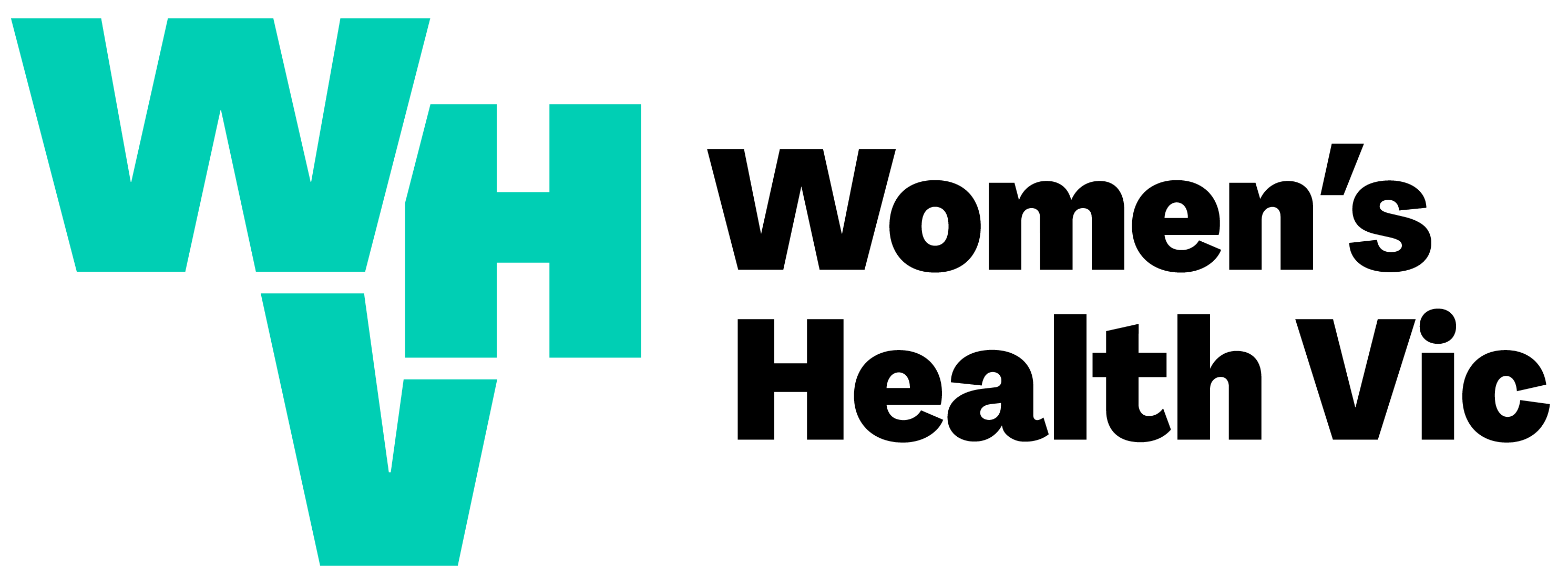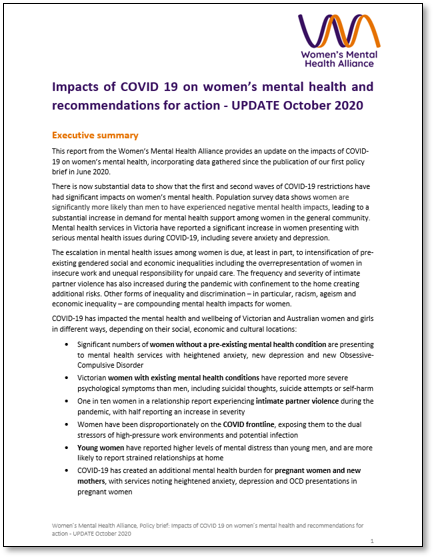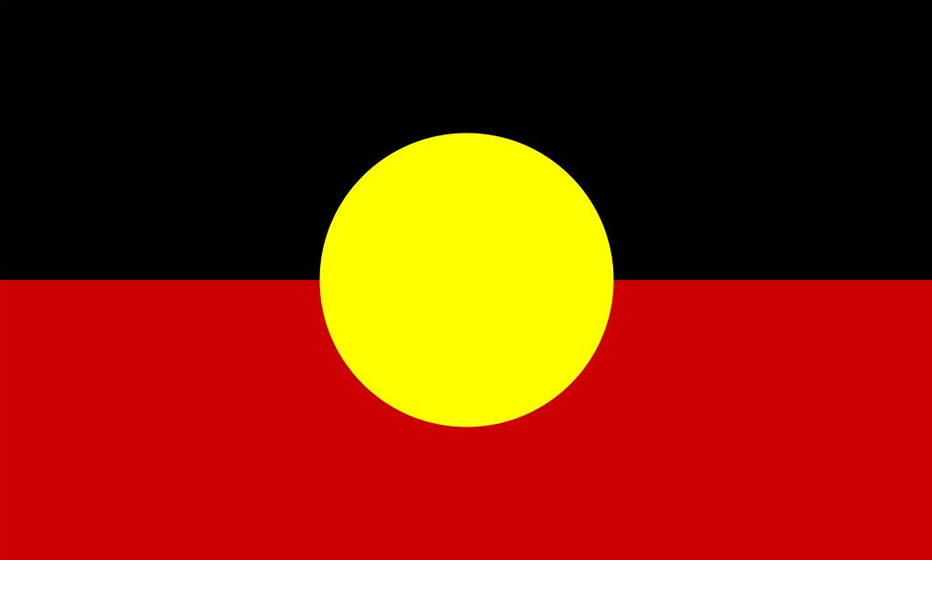Impacts of COVID 19 on women’s mental health and recommendations for action - updated October 2020
This report from the Women’s Mental Health Alliance provides an update on the impacts of COVID-19 on women’s mental health, incorporating data gathered since the publication of our first policy brief in June 2020. A 2021 update is also available.
There is now substantial data to show that the first and second waves of COVID-19 restrictions have had significant impacts on women’s mental health. Population survey data shows women are significantly more likely than men to have experienced negative mental health impacts, leading to a substantial increase in demand for mental health support among women in the general community. Mental health services in Victoria have reported a significant increase in women presenting with serious mental health issues during COVID-19, including severe anxiety and depression.
It is evident that COVID-19 has amplified the structural inequalities that drive poor mental health outcomes for women, underlining the importance of using gender impact analysis to inform policy-making and budgeting as we emerge from the pandemic.
This report makes a series of recommendations for a gender transformative recovery to support women’s mental health across four themes:
-
Creating the infrastructure needed to support planning and decision-making for a gender equal recovery
-
Applying an intersectional gender lens to policy-making and budgeting to address the underlying gendered social and economic inequalities that drive poor mental health outcomes for women and girls
-
Ensuring equitable access to appropriate mental health support for all women and girls
-
Providing other needed supports for women’s mental health and safety
Read an October 2021 COVID-19 and women's mental health update with observations from WMHA members here.
Read the June 2020 COVID brief here.
Women's Mental Health Alliance (2020) Impacts of COVID 19 on women’s mental health and recommendations for action - UPDATE October 2020, Women's Health Victoria. Melbourne.






